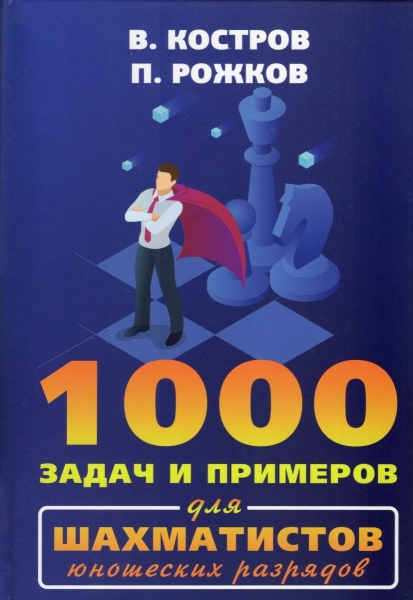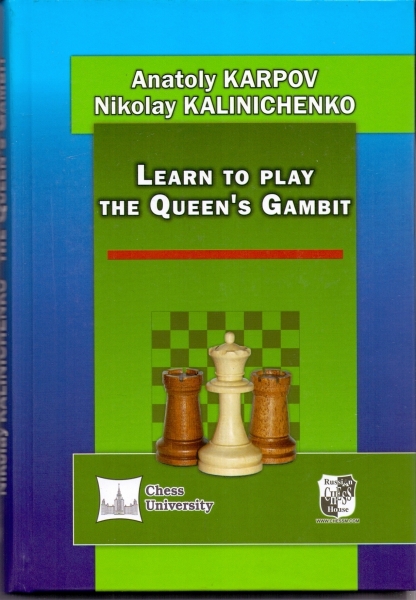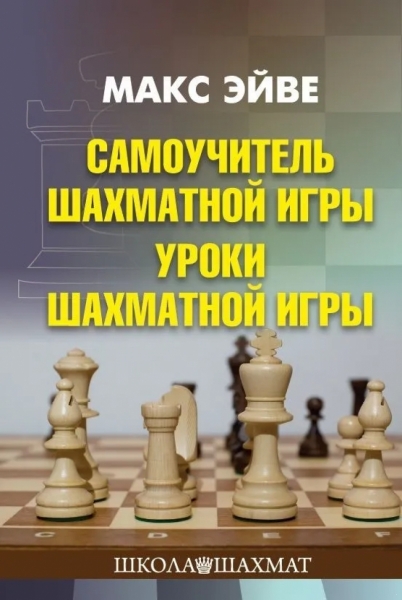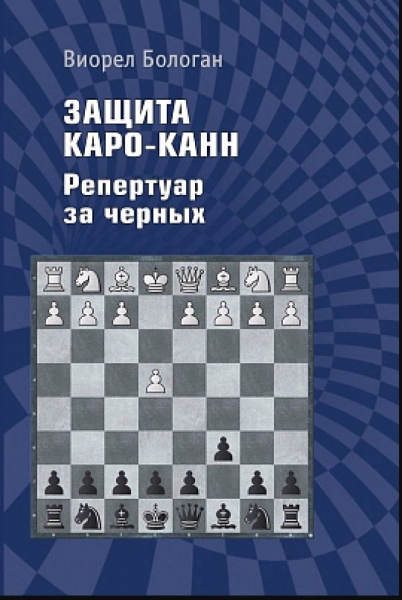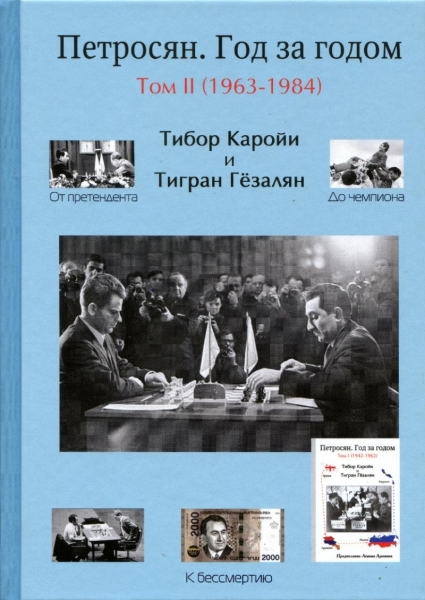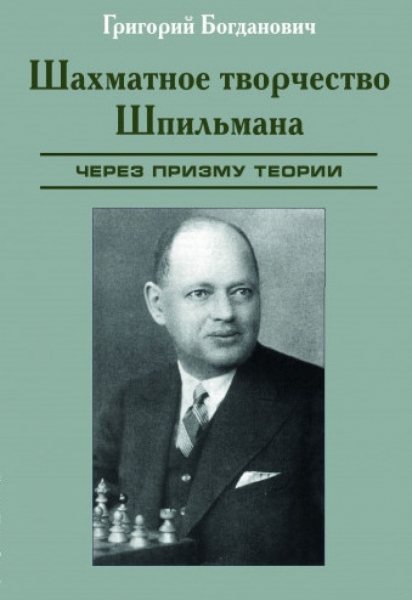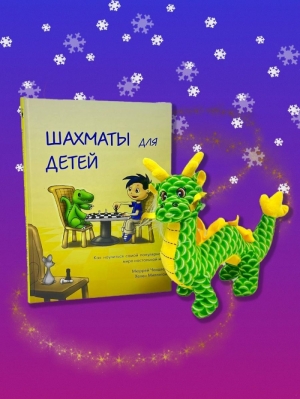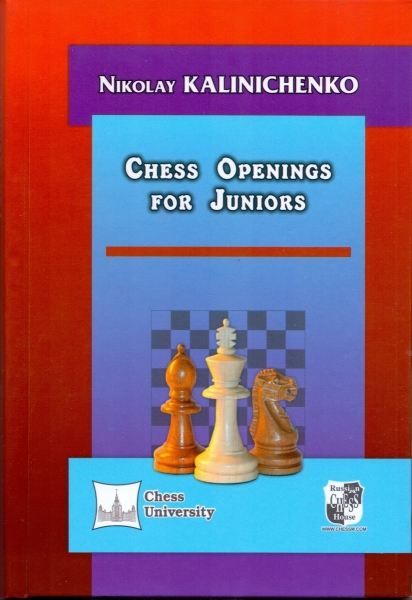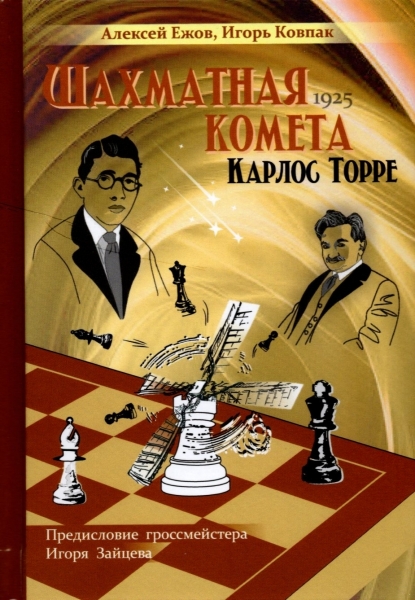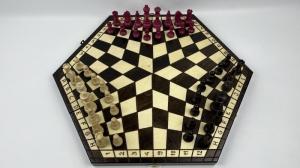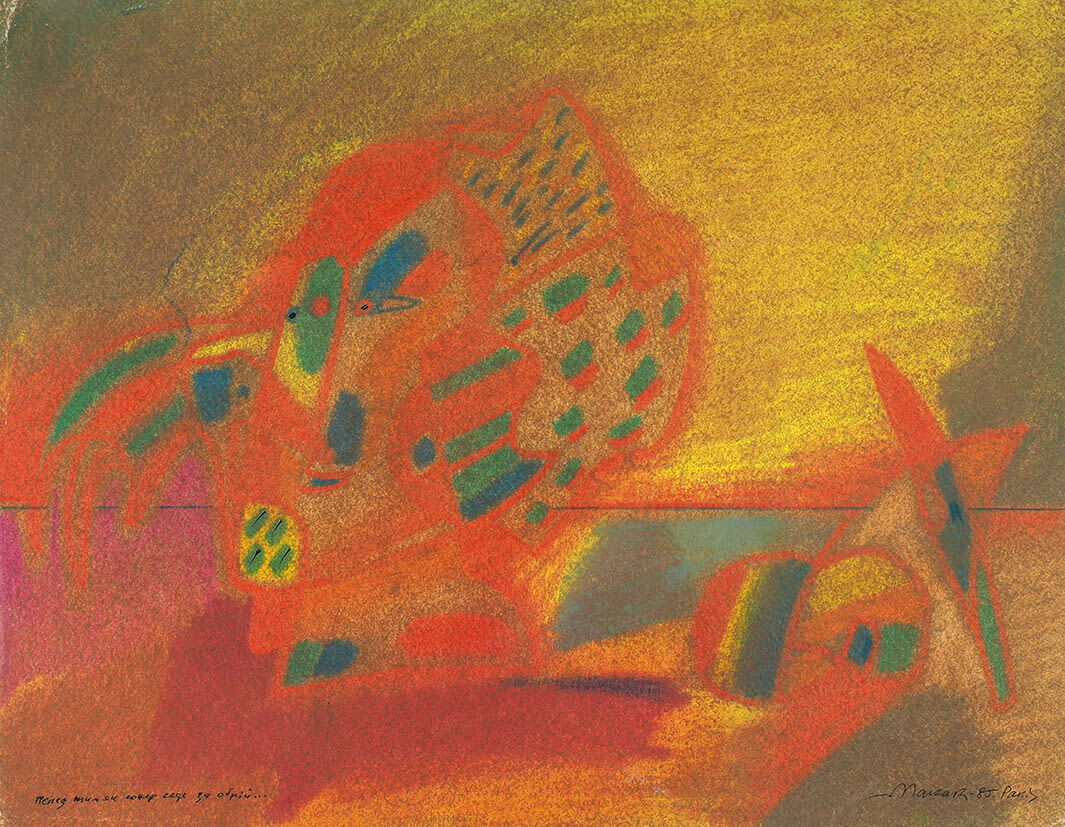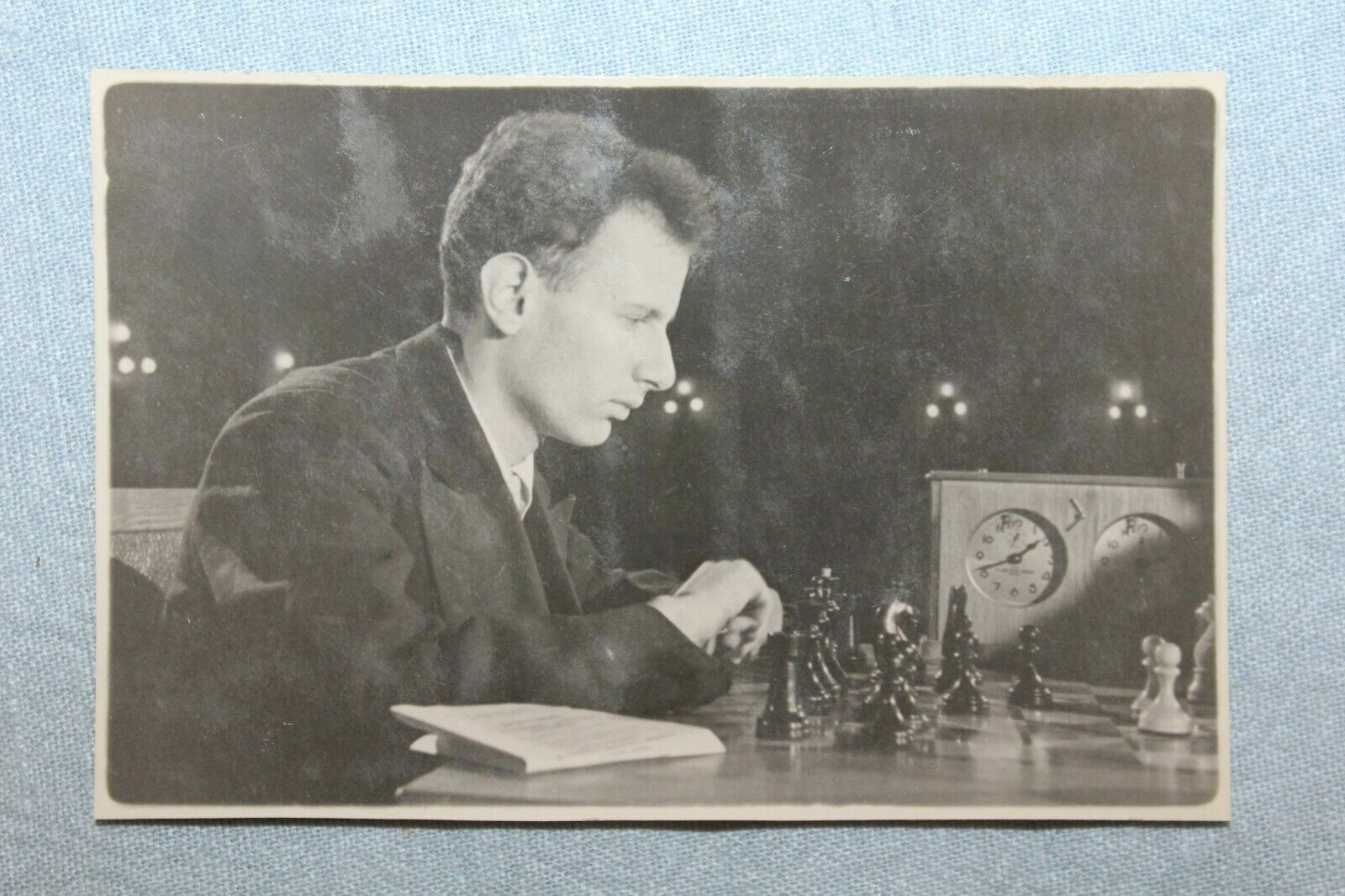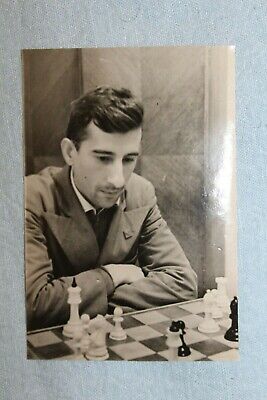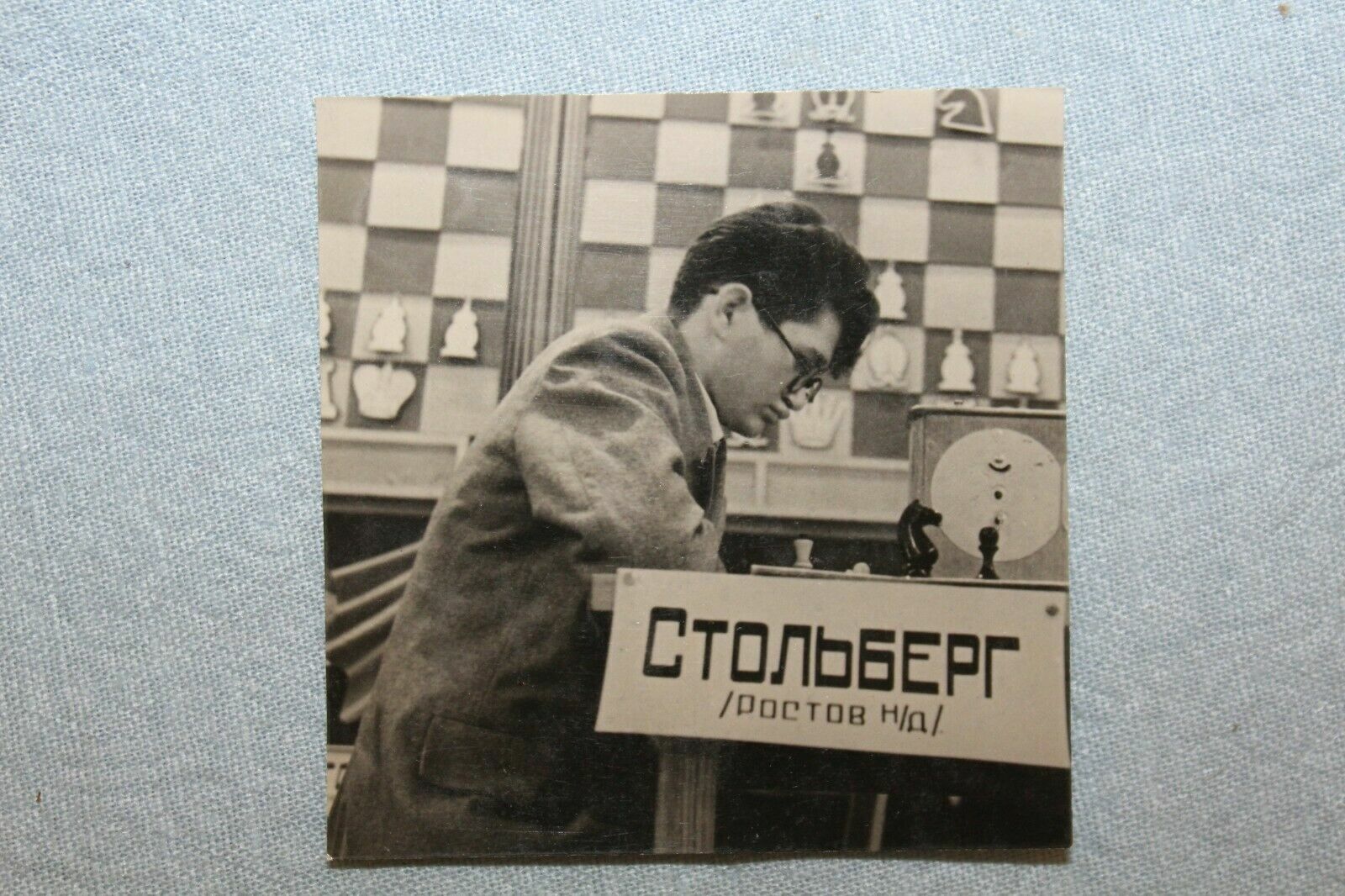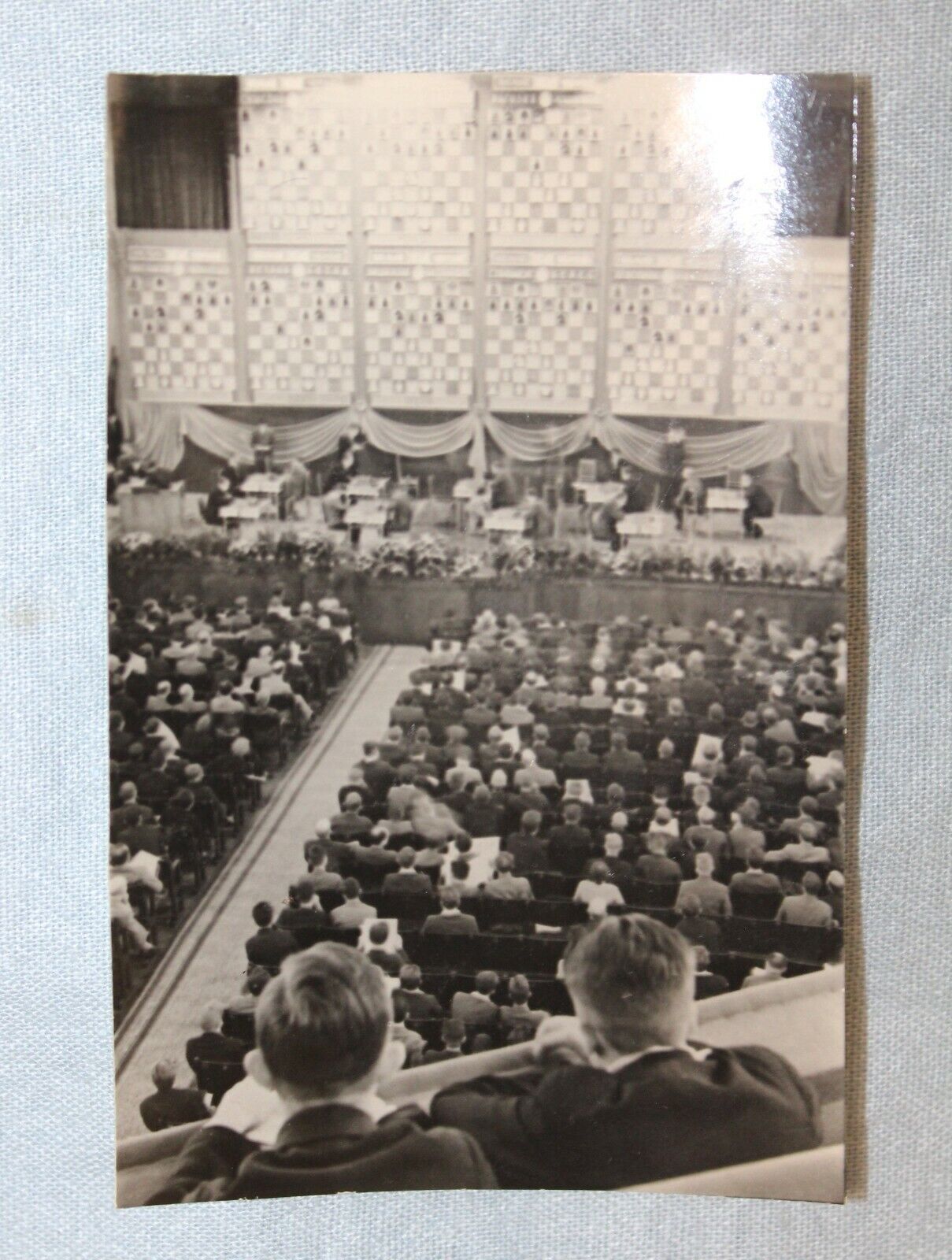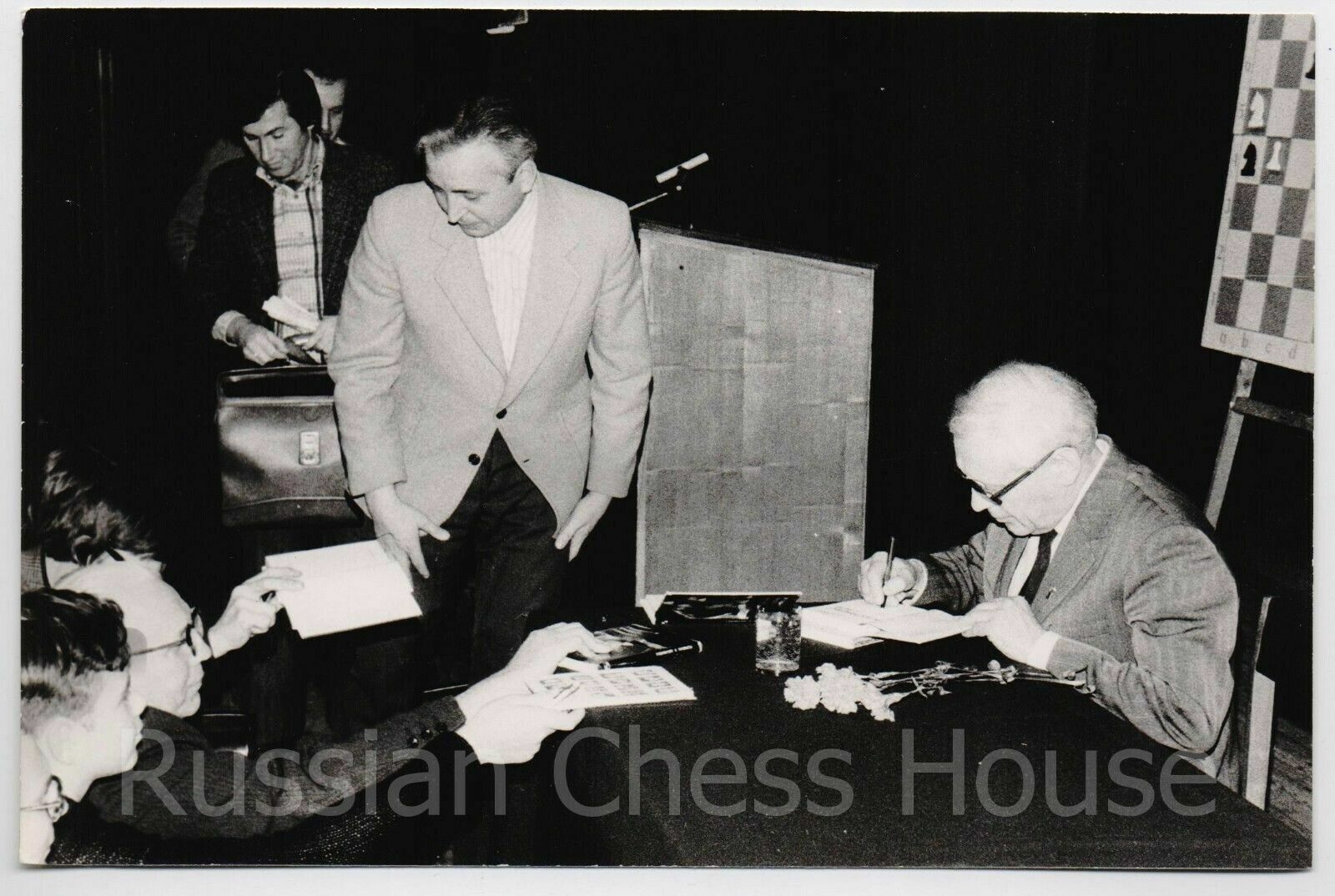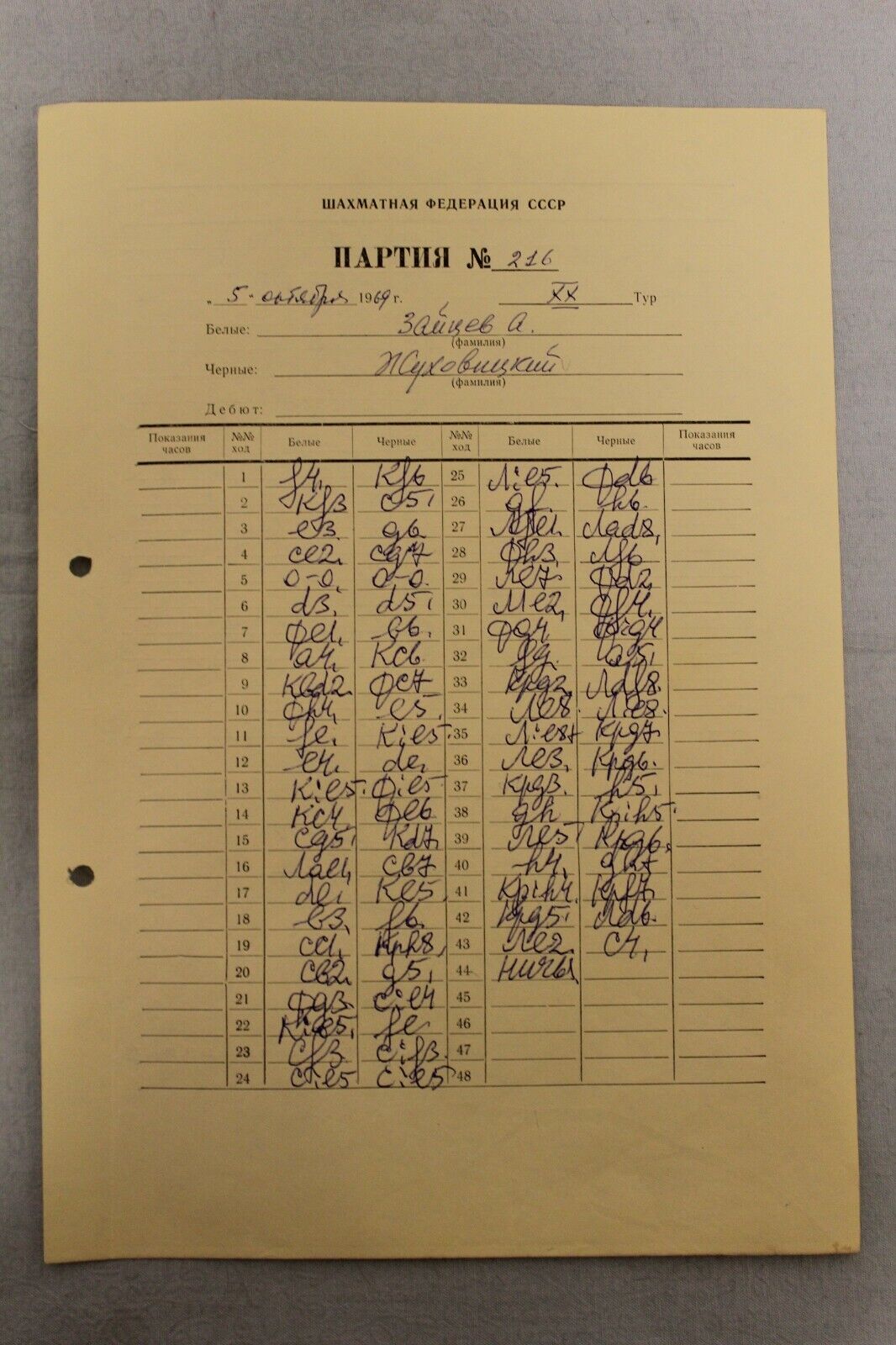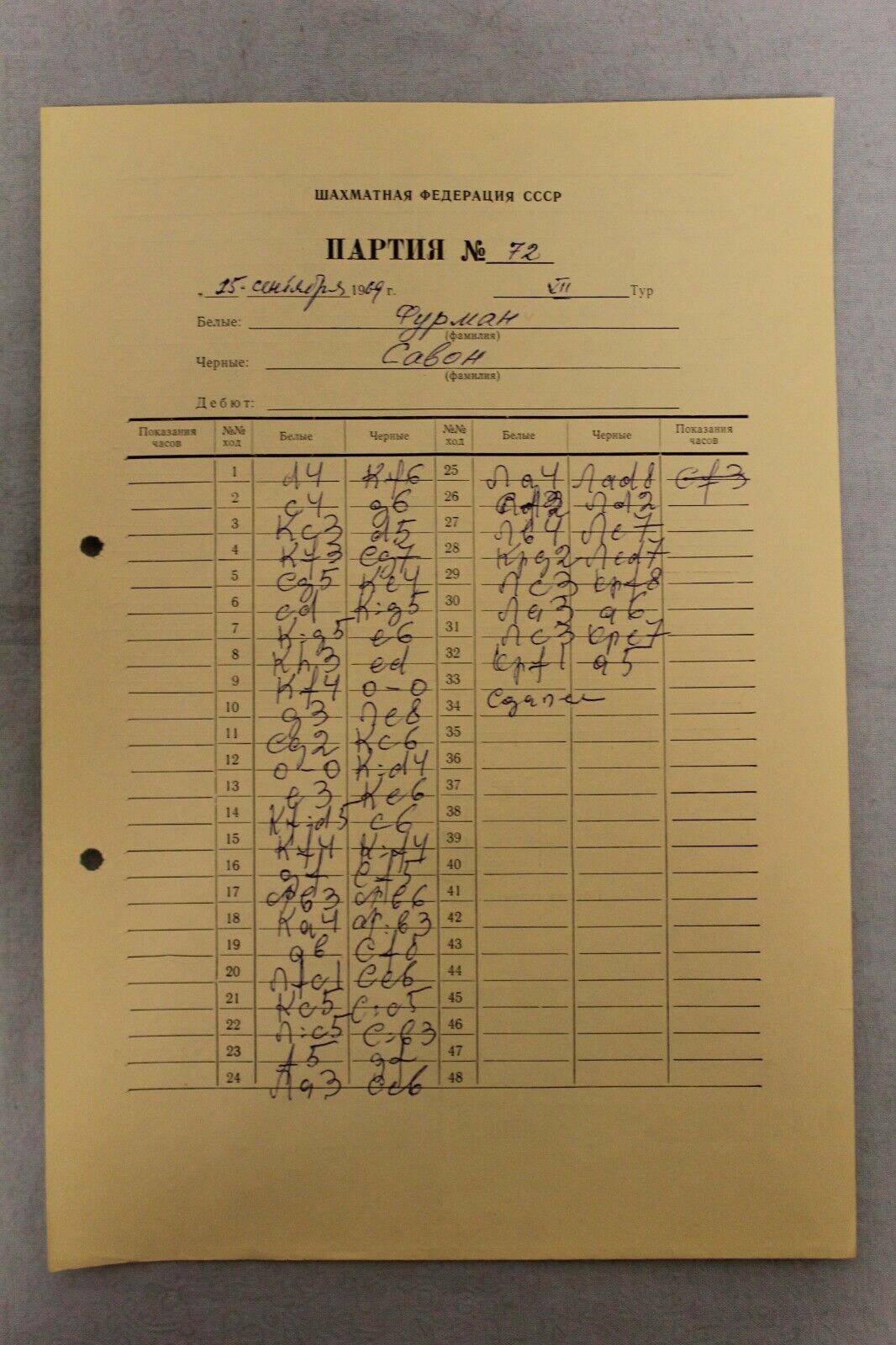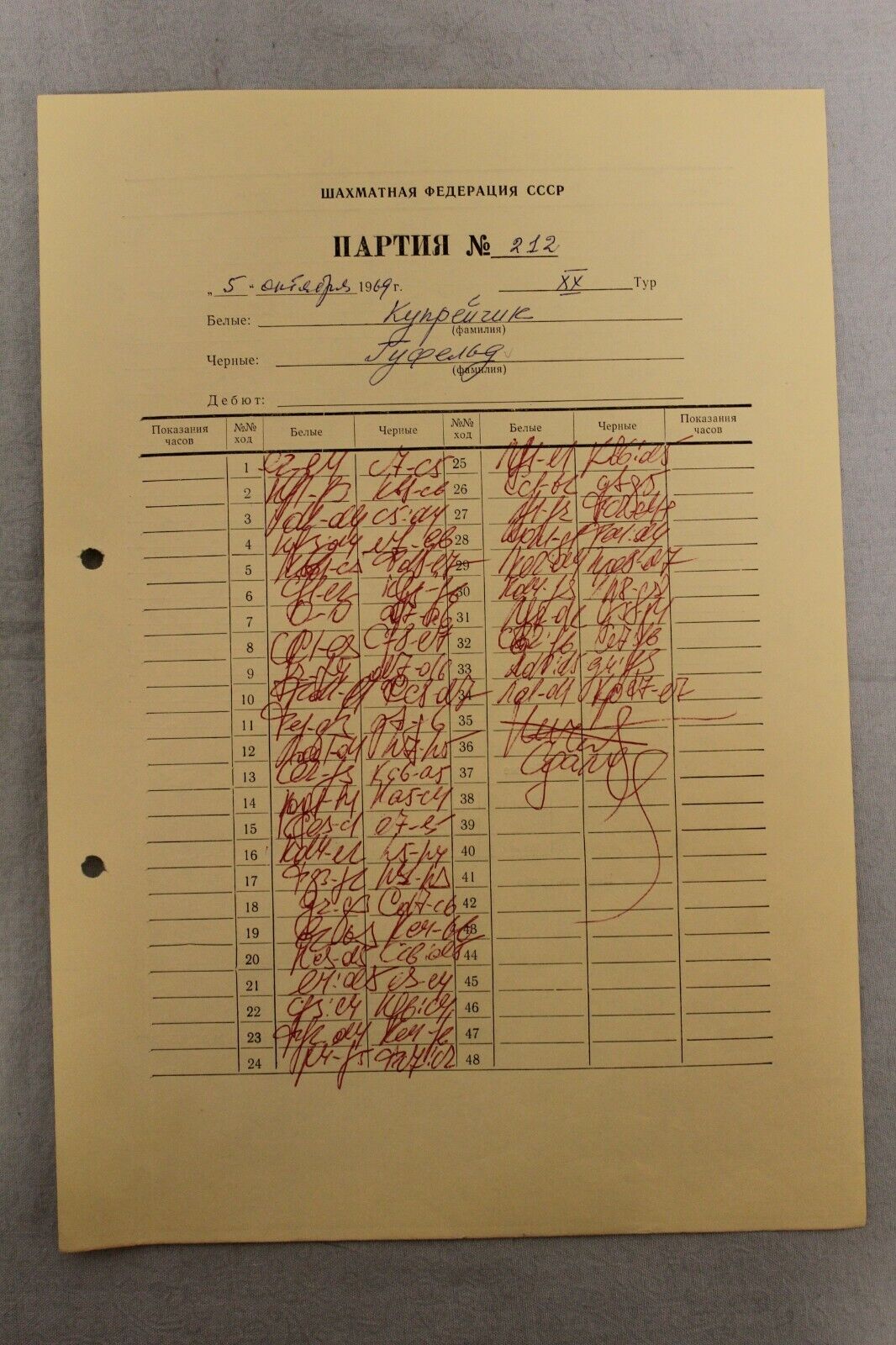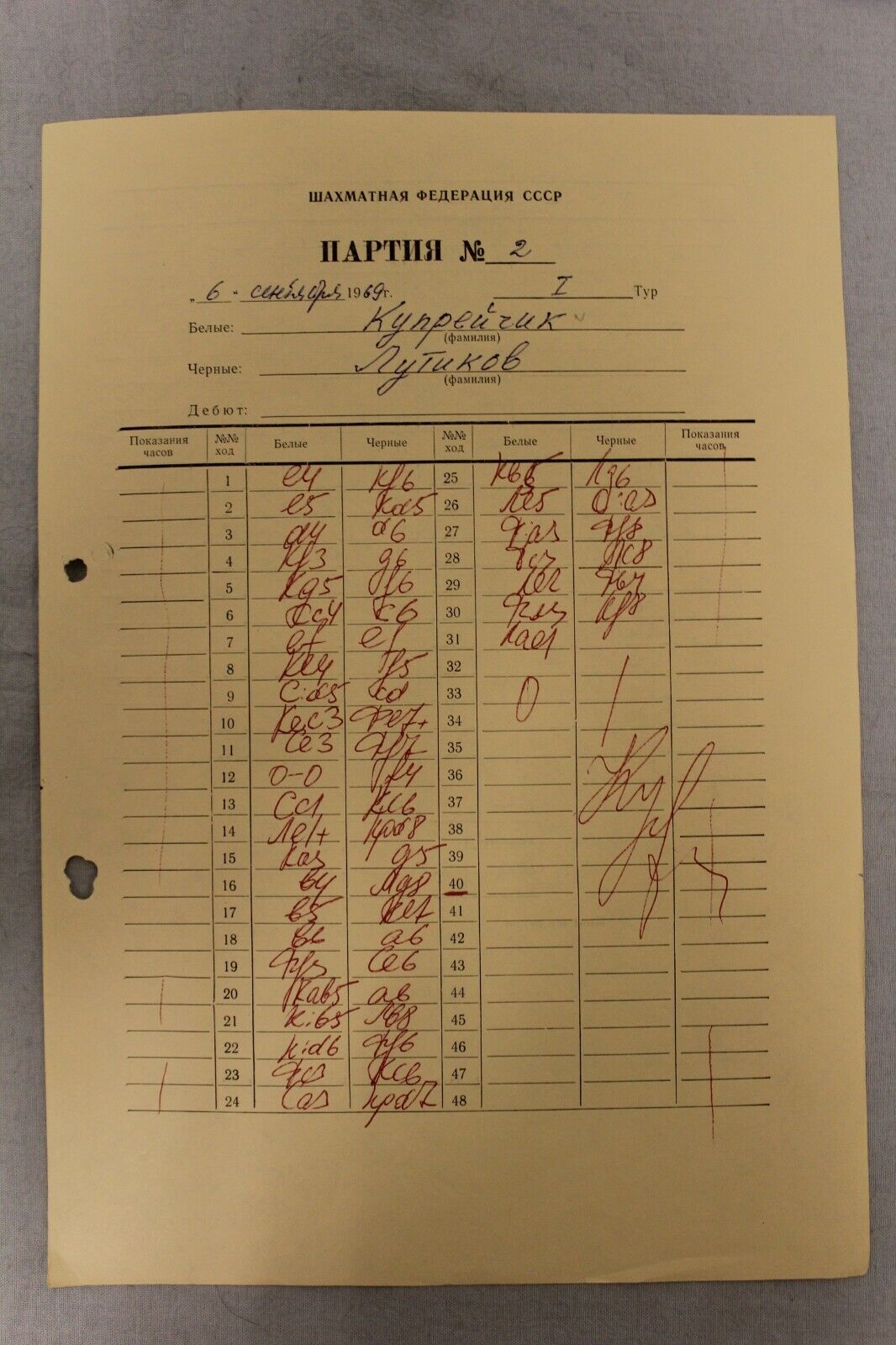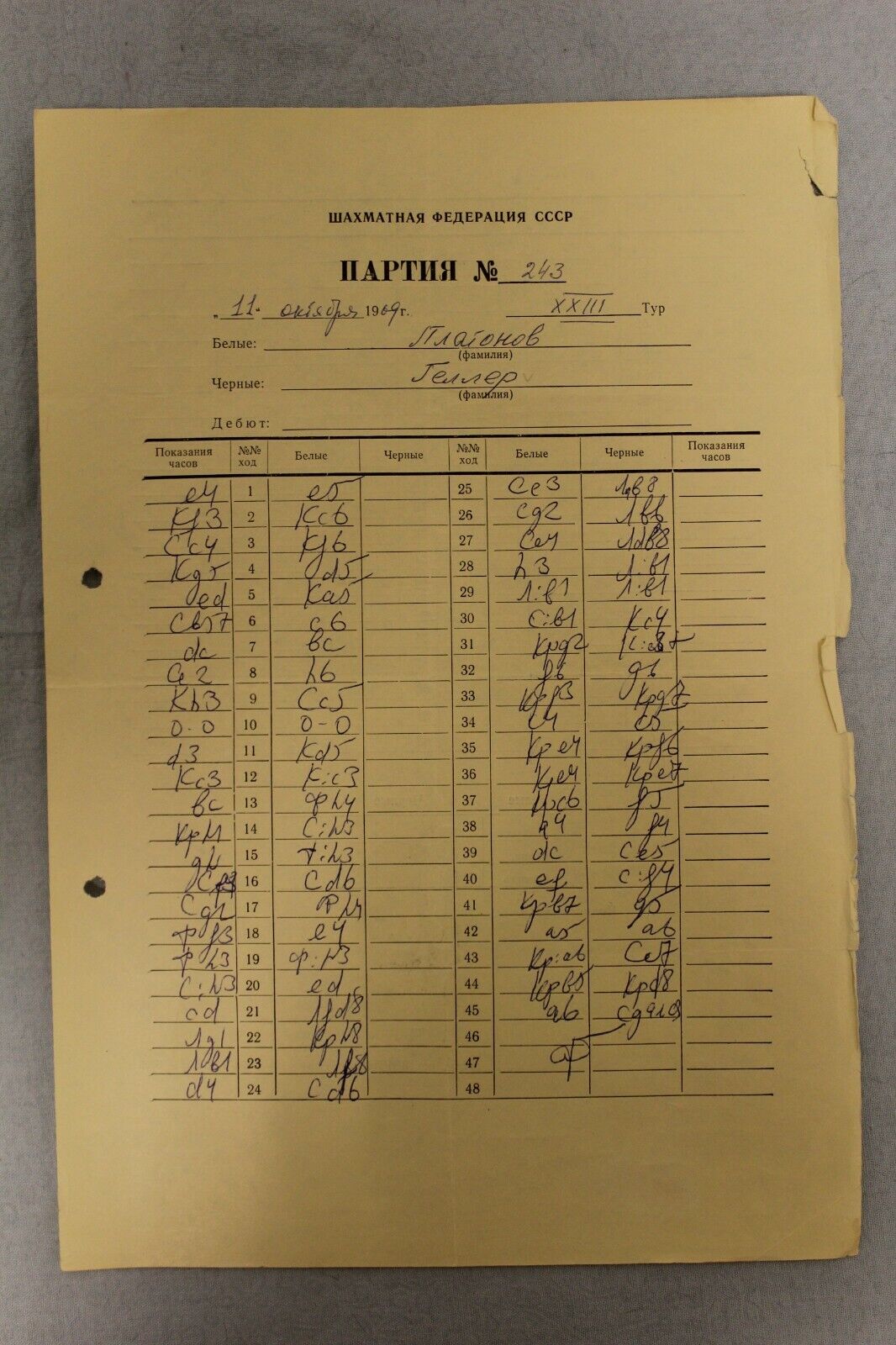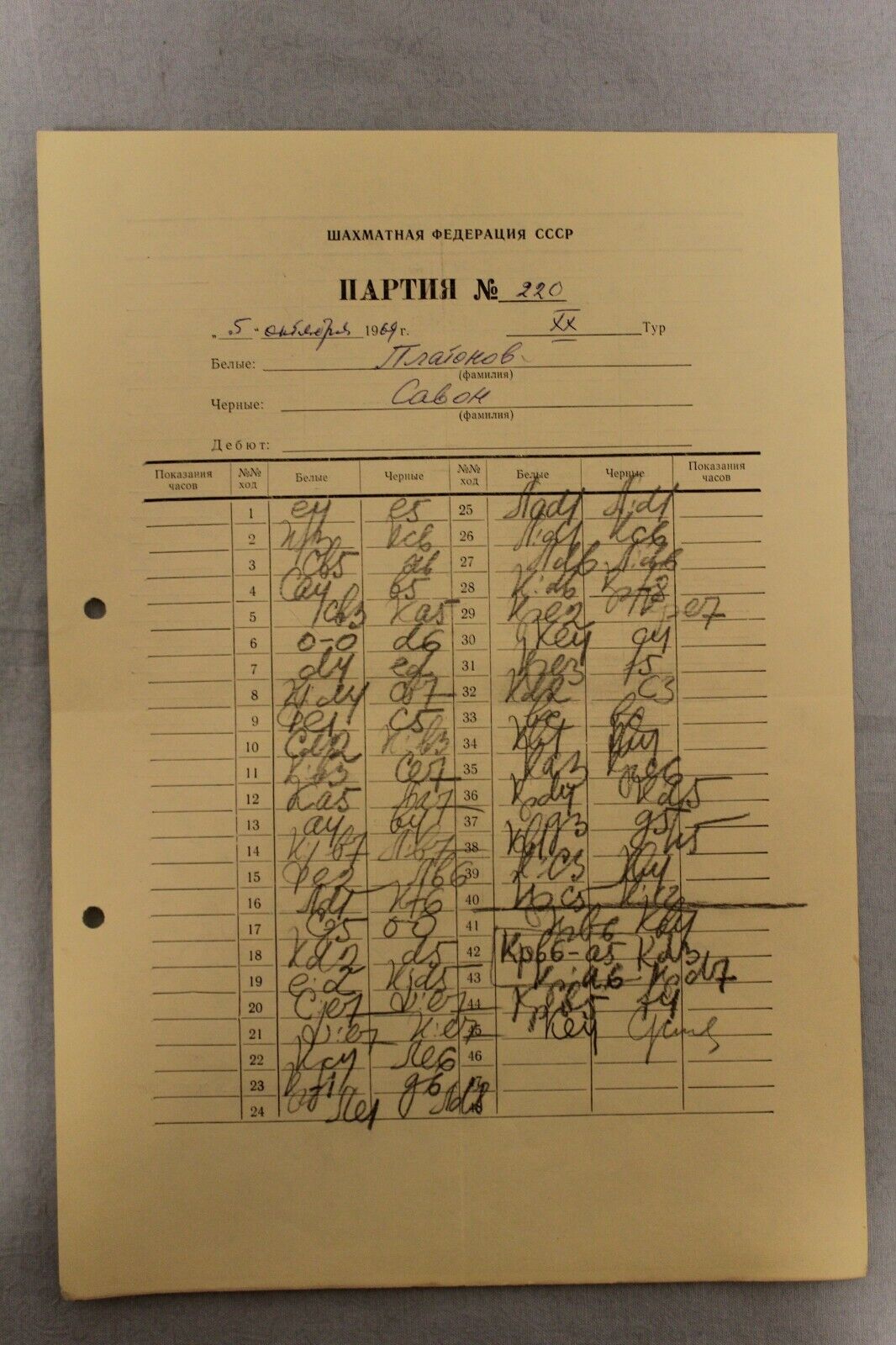eBay items
-
360.00 $
Makarenko Vladimir (b. 1943) "Composition". 1985 Paper, pastel, ink, pen, 23,4×29,9 cm. In the lower right corner the author's signature and date: "Makar 85 Paris". Nonconformist artist. In 1963 he graduated from the Dnepropetrovsk art school in the Studio of Y. Kalashnik. For his thesis "In the blue land" in the manner of "geometric realism" was accused of formalism, the painting was destroyed, and the artist is deprived of the opportunity to continue his studies in Ukraine. He moved to Leningrad, where in 1963 he entered the monumental faculty of the Higher school of monumental art. V. Mukhina. In Leningrad, took private lessons in the studios N. Altman and P. Kondratiev. He was friends with artists M. Shemyakin, E. Rukhlin, V. Mishin, E. Esaulenko, V. Yankilevsky, A. Nemukhin and O. Tselkov. In 1969 he graduated and received a diploma of monumental artist. In the same year he became a member of the informal organization of nonconformist artists, known in the West as the "St. Petersburg group". In 1973 he was forced to leave Leningrad and move to Tallinn, where he quickly entered the artistic circle and took part in group exhibitions. In 1974, together with F. Humeniuk, V. Sazonov and V. by Strelnikov exhibited at the exhibition of Ukrainian nonconformist artists in Moscow in the apartment of a Man. In 1976 he held his first solo exhibition in Paris at the gallery Hardy. Living in Tallinn, he worked as a Stoker, refused to join the Union of artists. He worked in a small workshop, sometimes received orders for illustrations for magazines and Newspapers. In 1973 — 1980 he annually applied for departure to France, and only in 1981 he received permission and moved to Paris. Since then lives and works in Paris.
-
35.00 $
Isaac Efremovich Boleslavsky SIZE OF THE PHOTO - approx. 8,5 cm x 5,5 cm 12TH SOVIET CHESS CHAMPIONSHIP: This is a photograph from the famous 12th Soviet Chess Championship held in the Grand Hall of the Moscow Conservatory from September 4th through October 3rd, 1940. The 12th Soviet Chess Championship was truly a battle of the titans. Outstanding players such as Mikhail Botvinnik, Paul Keres, Vasily Smyslov, Alexander Kotov, Isaac Boleslavsky, Igor Bondarevsky, and Andre Lilienthal took part. This so-called "absolute championship" is rightfully considered one of the strongest USSR chess championships ever held. Heres an excerpt from Mikhail Botvinniks memoirs. "It was a tough tournament. There were many participants and very few off-days. The Grand Hall of the Conservatory has excellent acoustics. The spectators behaved impudently, made a great deal of noise, and clapped all the time. The excellent acoustics only made matters worse. Supposedly, Sergei Prokofiev applauded Keres vigorously after the latter won a game. The other people in his box reprimanded him,, and then the composer remarked, "I have every right to express my feelings." Would my friend Mr. Prokofiev be happy if he were playing a trio and spectators applauding the violinists performance drowned out his piano piece? Chess players are in a worse position, though. A pianist can afford to play a few false notes amid booming applause, something a chess player isnt allowed to do." The results of the 12th Soviet Chess Championship were truly sensational, since two young players, Andre Lilienthal and Igor Bondarevsky, came in first and second, respectively, leaving grandmasters Mikhail Botvinnik and Paul Keres, the tournament favorites, far behind. The unprecedented hype surrounding this tournament matched its historical significance. After all, the unofficial right to contend for the world championship crown, as well as the prestigious title of USSR champion were on the line. "The most difficult and most monumental tournament in which Ive ever taken part has come to a close," Andre Lilienthal wrote. "I have no reason to be displeased with myself. First off, my win over Botvinnik himself wasnt too bad. Secondly, I snatched what seemed to be an irrevocably lost point from Bondarevsky in the last round. Thirdly, I managed not to lose a single game. Fourthly, I wound up in the wonderful young company of Bondarevsky and Smyslov at the top of the leaderboard. A decisive match for the title of USSR champion is up next. I have to prepare thoroughly for it, which, first and foremost, means getting some much needed rest." Three months after the tournament was completed, on January 14th, 1991, the Soviet Committee on Physical Culture and Sports issued an order approving the tournament results and awarding Bondarevsky and Lilienthal, the tournament winners, grandmaster titles; however, this order was missing a key point, since it did not mention any sort of match between the two victors. That strange inconsistency came to light a month later when it was decided - through a behind-the-scenes power struggle - that one more tournament for the title of absolute USSR champion would be held, a tournament Mikhail Botvinnik won. Art PK4
-
40.00 $
Igor Bondarevsky SIZE OF THE PHOTO - approx. 8 cm x 5,5 cm 12TH SOVIET CHESS CHAMPIONSHIP: This is a photograph from the famous 12th Soviet Chess Championship held in the Grand Hall of the Moscow Conservatory from September 4th through October 3rd, 1940. The 12th Soviet Chess Championship was truly a battle of the titans. Outstanding players such as Mikhail Botvinnik, Paul Keres, Vasily Smyslov, Alexander Kotov, Isaac Boleslavsky, Igor Bondarevsky, and Andre Lilienthal took part. This so-called "absolute championship" is rightfully considered one of the strongest USSR chess championships ever held. Here’s an excerpt from Mikhail Botvinnik’s memoirs. "It was a tough tournament. There were many participants and very few off-days. The Grand Hall of the Conservatory has excellent acoustics. The spectators behaved impudently, made a great deal of noise, and clapped all the time. The excellent acoustics only made matters worse. Supposedly, Sergei Prokofiev applauded Keres vigorously after the latter won a game. The other people in his box reprimanded him,, and then the composer remarked, "I have every right to express my feelings." Would my friend Mr. Prokofiev be happy if he were playing a trio and spectators applauding the violinist’s performance drowned out his piano piece? Chess players are in a worse position, though. A pianist can afford to play a few false notes amid booming applause, something a chess player isn’t allowed to do." The results of the 12th Soviet Chess Championship were truly sensational, since two young players, Andre Lilienthal and Igor Bondarevsky, came in first and second, respectively, leaving grandmasters Mikhail Botvinnik and Paul Keres, the tournament favorites, far behind. The unprecedented hype surrounding this tournament matched its historical significance. After all, the unofficial right to contend for the world championship crown, as well as the prestigious title of USSR champion were on the line. "The most difficult and most monumental tournament in which I’ve ever taken part has come to a close," Andre Lilienthal wrote. "I have no reason to be displeased with myself. First off, my win over Botvinnik himself wasn’t too bad. Secondly, I snatched what seemed to be an irrevocably lost point from Bondarevsky in the last round. Thirdly, I managed not to lose a single game. Fourthly, I wound up in the wonderful young company of Bondarevsky and Smyslov at the top of the leaderboard. A decisive match for the title of USSR champion is up next. I have to prepare thoroughly for it, which, first and foremost, means getting some much needed rest." Three months after the tournament was completed, on January 14th, 1991, the Soviet Committee on Physical Culture and Sports issued an order approving the tournament results and awarding Bondarevsky and Lilienthal, the tournament winners, grandmaster titles; however, this order was missing a key point, since it did not mention any sort of match between the two victors. That strange inconsistency came to light a month later when it was decided - through a behind-the-scenes power struggle - that one more tournament for the title of absolute USSR champion would be held, a tournament Mikhail Botvinnik won. Art PK4
-
45.00 $
MASTER MARK STOLBERG. *After two years of that tournament, in 1942, Mark Stolberg disappeared forever on a World War II. SIZE OF THE PHOTO - approx. 5 cm x 5 cm 12TH SOVIET CHESS CHAMPIONSHIP: This is a photograph from the famous 12th Soviet Chess Championship held in the Grand Hall of the Moscow Conservatory from September 4th through October 3rd, 1940. The 12th Soviet Chess Championship was truly a battle of the titans. Outstanding players such as Mikhail Botvinnik, Paul Keres, Vasily Smyslov, Alexander Kotov, Isaac Boleslavsky, Igor Bondarevsky, and Andre Lilienthal took part. This so-called "absolute championship" is rightfully considered one of the strongest USSR chess championships ever held. Heres an excerpt from Mikhail Botvinniks memoirs. "It was a tough tournament. There were many participants and very few off-days. The Grand Hall of the Conservatory has excellent acoustics. The spectators behaved impudently, made a great deal of noise, and clapped all the time. The excellent acoustics only made matters worse. Supposedly, Sergei Prokofiev applauded Keres vigorously after the latter won a game. The other people in his box reprimanded him,, and then the composer remarked, "I have every right to express my feelings." Would my friend Mr. Prokofiev be happy if he were playing a trio and spectators applauding the violinists performance drowned out his piano piece? Chess players are in a worse position, though. A pianist can afford to play a few false notes amid booming applause, something a chess player isnt allowed to do." The results of the 12th Soviet Chess Championship were truly sensational, since two young players, Andre Lilienthal and Igor Bondarevsky, came in first and second, respectively, leaving grandmasters Mikhail Botvinnik and Paul Keres, the tournament favorites, far behind. The unprecedented hype surrounding this tournament matched its historical significance. After all, the unofficial right to contend for the world championship crown, as well as the prestigious title of USSR champion were on the line. "The most difficult and most monumental tournament in which Ive ever taken part has come to a close," Andre Lilienthal wrote. "I have no reason to be displeased with myself. First off, my win over Botvinnik himself wasnt too bad. Secondly, I snatched what seemed to be an irrevocably lost point from Bondarevsky in the last round. Thirdly, I managed not to lose a single game. Fourthly, I wound up in the wonderful young company of Bondarevsky and Smyslov at the top of the leaderboard. A decisive match for the title of USSR champion is up next. I have to prepare thoroughly for it, which, first and foremost, means getting some much needed rest." Three months after the tournament was completed, on January 14th, 1991, the Soviet Committee on Physical Culture and Sports issued an order approving the tournament results and awarding Bondarevsky and Lilienthal, the tournament winners, grandmaster titles; however, this order was missing a key point, since it did not mention any sort of match between the two victors. That strange inconsistency came to light a month later when it was decided - through a behind-the-scenes power struggle - that one more tournament for the title of absolute USSR champion would be held, a tournament Mikhail Botvinnik won. Art PK4
-
35.00 $
General view from the hall of the Moscow conservatory. 1940 ORIGINAL SOVIET CHESS PHOTO FROM 12TH USSR CHESS CHAMPIONSHIP IN 1940 YEAR. SIZE OF THE PHOTO – 8,3 cm x 5,4 cm 12TH SOVIET CHESS CHAMPIONSHIP: This is a photograph from the famous 12th Soviet Chess Championship held in the Grand Hall of the Moscow Conservatory from September 4th through October 3rd, 1940. The 12th Soviet Chess Championship was truly a battle of the titans. Outstanding players such as Mikhail Botvinnik, Paul Keres, Vasily Smyslov, Alexander Kotov, Isaac Boleslavsky, Igor Bondarevsky, and Andre Lilienthal took part. This so-called "absolute championship" is rightfully considered one of the strongest USSR chess championships ever held. Here’s an excerpt from Mikhail Botvinnik’s memoirs. "It was a tough tournament. There were many participants and very few off-days. The Grand Hall of the Conservatory has excellent acoustics. The spectators behaved impudently, made a great deal of noise, and clapped all the time. The excellent acoustics only made matters worse. Supposedly, Sergei Prokofiev applauded Keres vigorously after the latter won a game. The other people in his box reprimanded him,, and then the composer remarked, "I have every right to express my feelings." Would my friend Mr. Prokofiev be happy if he were playing a trio and spectators applauding the violinist’s performance drowned out his piano piece? Chess players are in a worse position, though. A pianist can afford to play a few false notes amid booming applause, something a chess player isn’t allowed to do." The results of the 12th Soviet Chess Championship were truly sensational, since two young players, Andre Lilienthal and Igor Bondarevsky, came in first and second, respectively, leaving grandmasters Mikhail Botvinnik and Paul Keres, the tournament favorites, far behind. The unprecedented hype surrounding this tournament matched its historical significance. After all, the unofficial right to contend for the world championship crown, as well as the prestigious title of USSR champion were on the line. "The most difficult and most monumental tournament in which I’ve ever taken part has come to a close," Andre Lilienthal wrote. "I have no reason to be displeased with myself. First off, my win over Botvinnik himself wasn’t too bad. Secondly, I snatched what seemed to be an irrevocably lost point from Bondarevsky in the last round. Thirdly, I managed not to lose a single game. Fourthly, I wound up in the wonderful young company of Bondarevsky and Smyslov at the top of the leaderboard. A decisive match for the title of USSR champion is up next. I have to prepare thoroughly for it, which, first and foremost, means getting some much needed rest." Three months after the tournament was completed, on January 14th, 1991, the Soviet Committee on Physical Culture and Sports issued an order approving the tournament results and awarding Bondarevsky and Lilienthal, the tournament winners, grandmaster titles; however, this order was missing a key point, since it did not mention any sort of match between the two victors. That strange inconsistency came to light a month later when it was decided - through a behind-the-scenes power struggle - that one more tournament for the title of absolute USSR champion would be held, a tournament Mikhail Botvinnik won. Арт ПК7
-
30.00 $
Soviet Photo: Mikhail Botvinnik University of Chess Culture. After the lecture of Mikhail Botvinnik Photographer: M.Rabkin Dimensions: approx. 18 * 12 cm. Art PK7
-
34.00 $
Aleksandr Zaitsev – Samuil Zhuhovitsky. Score sheet of Zhuhovitsky Soviet chess score sheet from the 37th Chess Championship which was held in Moscow September 6 – October 12 1969. Tigran Petrosyan won an additional match for the title of champion (Moscow, January 19-29, 1970). The championship was also a fide zonal tournament. Polugaevsky, Geller, Smyslov and Taimanov won the right to participate in the interzonal tournament. The latter in the final round effectively won his "party of life" from LutikovАрт ПК 2
-
45.00 $
Semen Furman – Vladimir Savon. Score sheet of Furman Soviet chess score sheet from the 37th Chess Championship wich was held in Moscow September 6 – October 12 1969. Tigran Petrosyan won an additional match for the title of champion (Moscow, January 19-29, 1970). The championship was also a fide zonal tournament. Polugaevsky, Geller, Smyslov and Taimanov won the right to participate in the interzonal tournament. The latter in the final round effectively won his "party of life" from LutikovАрт ПК 2
-
60.00 $
Viktor Kupreichik – Eduard Gufeld. Score sheet of Kupreichik Soviet chess score sheet from the 37th Chess Championship which was held in Moscow September 6 – October 12 1969. Tigran Petrosyan won an additional match for the title of champion (Moscow, January 19-29, 1970). The championship was also a fide zonal tournament. Polugaevsky, Geller, Smyslov and Taimanov won the right to participate in the interzonal tournament. The latter in the final round effectively won his "party of life" from LutikovАрт ПК 2
-
54.00 $
Viktor Kupreichik – Anatoly Lutikov. Score sheet of Kupreichik Soviet chess score sheet from the 37th Chess Championship which was held in Moscow September 6 – October 12 1969. Tigran Petrosyan won an additional match for the title of champion (Moscow, January 19-29, 1970). The championship was also a fide zonal tournament. Polugaevsky, Geller, Smyslov and Taimanov won the right to participate in the interzonal tournament. The latter in the final round effectively won his "party of life" from LutikovАрт ПК 2
-
76.00 $
Igor Platonov – Efim Geller. Score sheet of Geller Soviet chess score sheet from the 37th Chess Championship wich was held in Moscow September 6 – October 12 1969. Tigran Petrosyan won an additional match for the title of champion (Moscow, January 19-29, 1970). The championship was also a fide zonal tournament. Polugaevsky, Geller, Smyslov and Taimanov won the right to participate in the interzonal tournament. The latter in the final round effectively won his "party of life" from LutikovАрт ПК 2
-
54.00 $
Igor Platonov – Vladimir Savon. Score sheet of Platonov Soviet chess score sheet from the 37th Chess Championship which was held in Moscow September 6 – October 12 1969. Tigran Petrosyan won an additional match for the title of champion (Moscow, January 19-29, 1970). The championship was also a fide zonal tournament. Polugaevsky, Geller, Smyslov and Taimanov won the right to participate in the interzonal tournament. The latter in the final round effectively won his "party of life" from LutikovАрт ПК 2
-
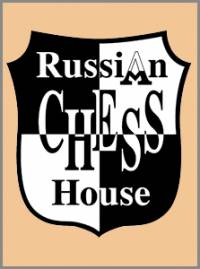 The life of a chess player in the system. Memories of the grandmaster
Author:
The life of a chess player in the system. Memories of the grandmaster
Author:
Averbah 45.00 $ -
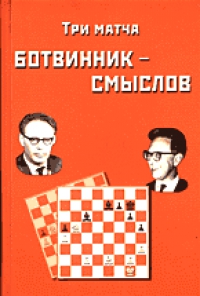 Три матча Ботвинник-Смыслов
Author:
Три матча Ботвинник-Смыслов
Author:
Botvinnik 45.00 $ -
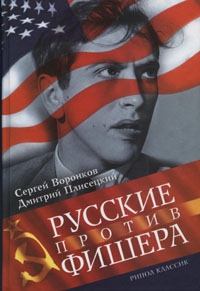 Russians vs Fisher
Author:
Russians vs Fisher
Author:
Voronkov 65.00 $ -
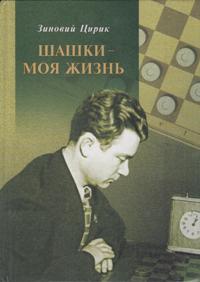 Checkers is my life
Author:
Checkers is my life
Author:
Ciric 87.50 $ -
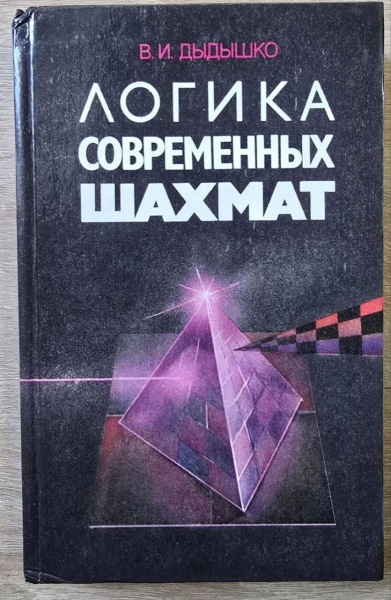 The logic of modern chess
Author:
The logic of modern chess
Author:
Dydyshko 72.50 $ -
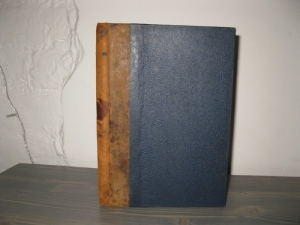 Siegbert Tarrasch. The Queen
Author:
Siegbert Tarrasch. The Queen
Author:
Tarrash 72.50 $ -
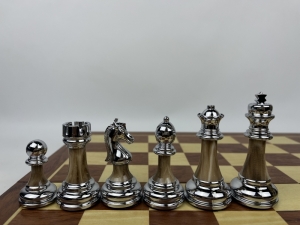 High quality acrylic metal heavy chess pieces with wooden board
202.50 $
High quality acrylic metal heavy chess pieces with wooden board
202.50 $
-
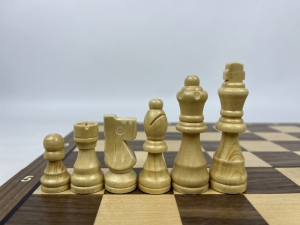 Wooden magnetic Staunton chess with a lock (silver)
56.25 $
Wooden magnetic Staunton chess with a lock (silver)
56.25 $
-
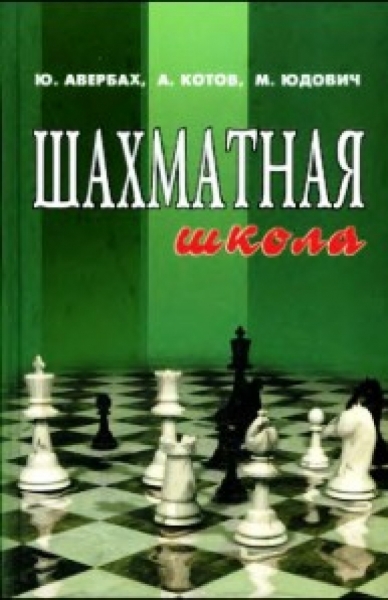 Chess school
Author:
Chess school
Author:
Averbah 15.00 $ -
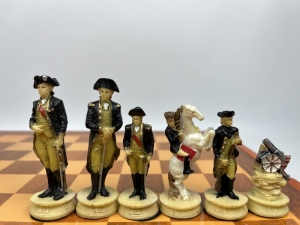 The chess set of The Chessmen. US war - Great Britain
325.00 $
The chess set of The Chessmen. US war - Great Britain
325.00 $
 Русский
Русский  Английский
Английский 